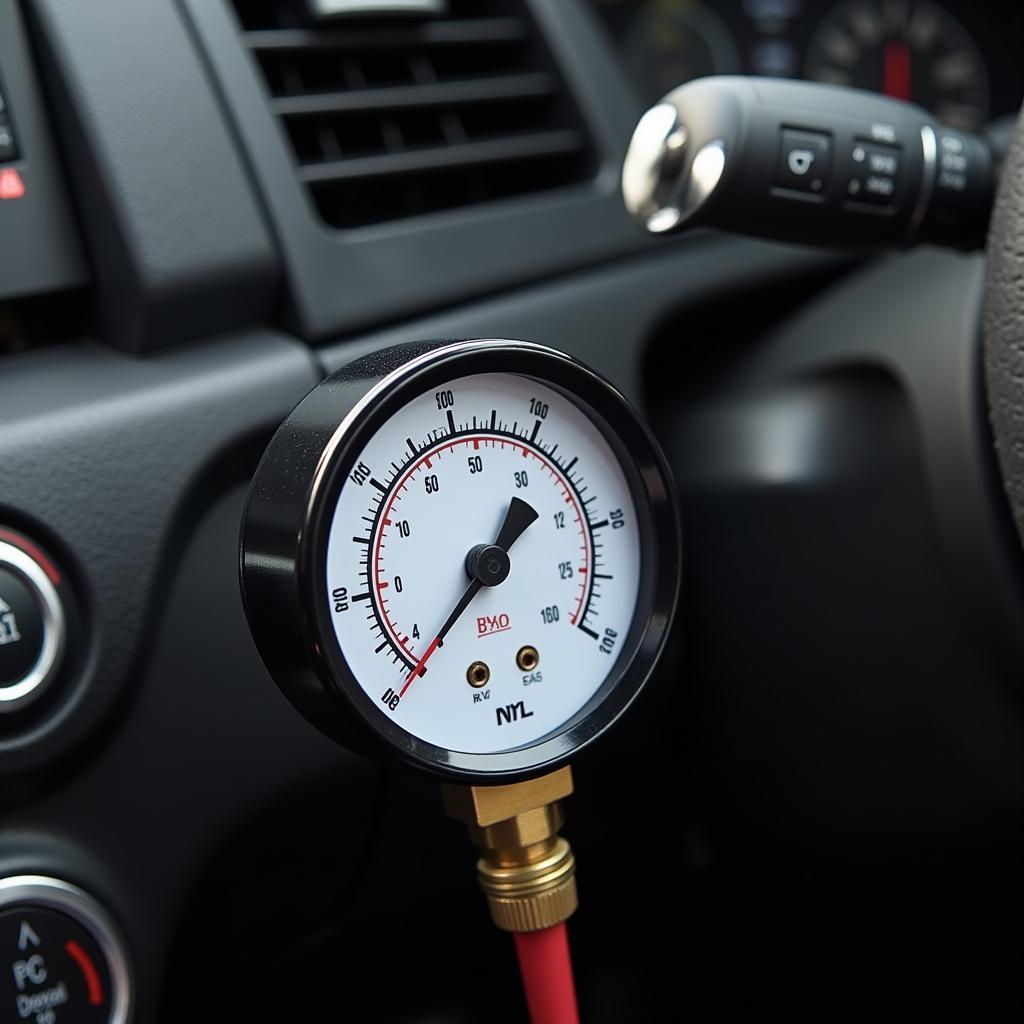What is Needed for a Full Car Service?
Ensuring your vehicle receives a full car service is crucial for maintaining optimal performance and extending its lifespan. But “What Is Needed For A Full Car Service?” you ask. A full car service goes beyond a basic oil change and encompasses a comprehensive inspection and maintenance of various vital components.
Delving Deeper: What Constitutes a Full Car Service?
A full car service is a thorough examination and maintenance procedure that addresses a wide range of components, ensuring your car runs smoothly and safely. Here’s a breakdown of the essential checks and services typically included:
Engine Oil and Filter Change
The lifeblood of your car, engine oil, needs regular replacement to prevent friction and wear on moving parts. A full service includes draining the old oil, replacing the oil filter, and refilling with the recommended grade of fresh oil.
Fluid Level Checks and Top-Ups
Your car relies on various fluids for smooth operation. A full service includes checking and topping up essential fluids like coolant, brake fluid, power steering fluid, transmission fluid, and windshield washer fluid.
Brake Inspection and Service
Your brakes are critical for safety. A full service includes inspecting brake pads and discs for wear and tear, checking brake fluid levels, and lubricating brake components.
Tire Condition and Pressure Check
Proper tire maintenance is crucial for safety and fuel efficiency. A full service includes inspecting tires for wear and tear, checking tire pressure, and inflating them to the recommended levels.
Battery Test
Your car battery powers various electrical components. A full service includes testing the battery’s voltage and charging capacity to ensure it’s in good working order.
Air Filter Replacement
The air filter ensures clean air reaches your engine for optimal combustion. A full service typically includes replacing a dirty air filter with a new one.
Lighting System Check
A full service includes inspecting all exterior lights, including headlights, taillights, brake lights, turn signals, and hazard lights, to ensure they are functioning correctly.
Steering and Suspension Inspection
Your car’s steering and suspension systems are vital for handling and ride comfort. A full service includes checking these systems for wear and tear and any signs of damage.
Exhaust System Inspection
The exhaust system expels harmful emissions from your engine. A full service includes inspecting the exhaust system for leaks, damage, and proper functionality.
Why is a Full Car Service Necessary?
Regular full car services are essential for a multitude of reasons:
- Safety: Ensuring your car is safe to drive is paramount. A full service addresses critical safety components like brakes, tires, and lights.
- Reliability: Regular maintenance minimizes the risk of breakdowns and unexpected repairs.
- Performance: A well-maintained car performs better, offering smoother handling, better fuel efficiency, and optimal engine performance.
- Resale Value: A full service history can significantly increase your car’s resale value, indicating it’s been well-maintained.
“A well-maintained car is a safe car,” says John Smith, Senior Automotive Technician at CarServiceOnline. “Regular full services can prevent costly repairs down the line and provide peace of mind knowing your vehicle is in top condition.”
What Impacts the Cost of a Full Car Service?
Several factors can influence the cost of a full car service:
- Make and Model of Your Car: Different cars require different types and amounts of fluids, parts, and labor time.
- Service Location: Labor rates and parts costs can vary depending on your location and the service provider.
- Additional Repairs: If any issues are identified during the service that require additional repairs, this will affect the overall cost.
How Often Should You Get a Full Car Service?
The general recommendation is to have a full car service annually or every 12,000 miles, whichever comes first. However, referring to your car’s owner’s manual for specific service intervals recommended by the manufacturer is crucial. Factors like driving conditions and mileage can also influence service frequency.
Conclusion
A full car service is an investment in your safety, your car’s longevity, and your peace of mind. By addressing all essential maintenance aspects, you can enjoy a smoother, safer, and more reliable driving experience. Remember to consult your owner’s manual for manufacturer-recommended service intervals and choose a reputable service provider to ensure quality work.
Need more information on car services? Check out these articles:
If you need help with your car, please contact us via WhatsApp: +1(641)206-8880 or Email: [email protected]. Our customer service team is available 24/7.

